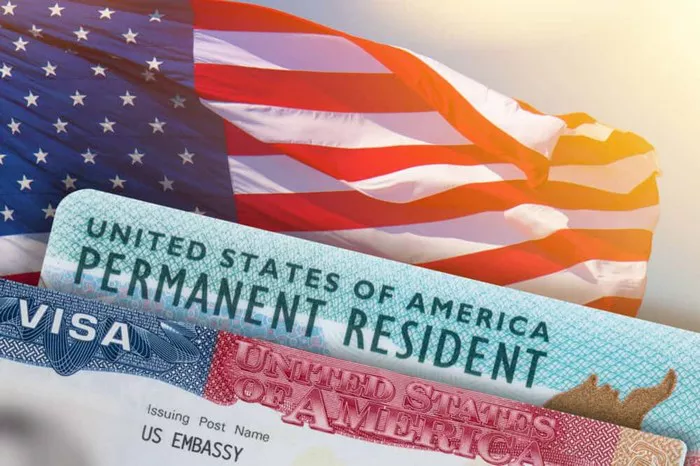The United States of America has long been a beacon for individuals seeking new opportunities, whether they are pursuing education, career advancement, or a better quality of life. For many, the ultimate goal is to obtain permanent residency in the United States, a status that offers numerous benefits and opportunities. However, navigating the complex immigration system and understanding the requirements for permanent residency can be daunting. In this article, we will explore what it means to be a permanent U.S. resident, the rights and responsibilities that come with this status, and the pathways to obtaining and maintaining permanent residency.
What is a Permanent U.S. Resident?
A permanent U.S. resident, commonly referred to as a green card holder, is an individual who has been granted authorization to live and work in the United States on a permanent basis. This status is distinct from temporary visas, which are issued for specific purposes and durations. Green card holders enjoy many of the same rights and privileges as U.S. citizens, although there are some significant differences.
One key distinction is that permanent residents are not eligible to vote in federal elections or hold certain elected offices. Additionally, they can lose their residency status if they commit certain crimes or violate immigration laws. However, permanent residents are entitled to most of the same legal protections and benefits as citizens, including access to healthcare, education, and social services.
Rights and Responsibilities of Permanent Residents
Permanent residents have a number of rights under U.S. law, including the right to live and work in the United States indefinitely. They also have the right to apply for U.S. citizenship after meeting certain eligibility requirements, such as maintaining continuous residence and demonstrating good moral character.
In addition to these rights, permanent residents also have certain responsibilities. These include obeying all federal, state, and local laws, paying taxes, and registering with the Selective Service System if they are male and between the ages of 18 and 26. Permanent residents are also required to carry their green card with them at all times as proof of their immigration status.
It is important for permanent residents to be aware of their rights and responsibilities in order to avoid running afoul of U.S. immigration laws. Failure to comply with these laws can result in serious consequences, including deportation and loss of residency status.
Pathways to Permanent Residency
There are several pathways to obtaining permanent residency in the United States, each with its own set of eligibility requirements and application procedures. The most common methods include family-based immigration, employment-based immigration, and refugee or asylum status.
Family-based immigration is perhaps the most straightforward way to obtain a green card. U.S. citizens and lawful permanent residents can sponsor certain family members for immigration, including spouses, children, parents, and siblings. The process typically involves filing a petition with U.S. Citizenship and Immigration Services (USCIS) and attending an interview at a local USCIS office.
Employment-based immigration is another common route to permanent residency. Individuals with job offers from U.S. employers may be eligible for a green card through employment sponsorship. There are several categories of employment-based visas, each with its own eligibility criteria and application process. In most cases, the employer must first obtain a labor certification from the Department of Labor before sponsoring the employee for permanent residency.
Refugees and asylees are individuals who have been granted protection in the United States due to fear of persecution in their home countries. Refugees apply for protection from outside the United States, while asylees apply for protection from within the United States. Both groups may be eligible for permanent residency after one year of continuous presence in the United States.
Other pathways to permanent residency include the Diversity Visa Lottery, which awards green cards to individuals from countries with low rates of immigration to the United States, and the Violence Against Women Act (VAWA), which allows certain abused spouses and children of U.S. citizens and permanent residents to self-petition for immigration benefits.
Maintaining Permanent Residency
Once granted permanent residency, individuals must take certain steps to maintain their status and avoid losing their green card. One of the most important requirements is maintaining continuous residence in the United States. Permanent residents who leave the country for extended periods of time may be considered to have abandoned their residency and could lose their green card as a result.
Permanent residents must also avoid committing certain crimes or engaging in other activities that could lead to deportation. These include crimes involving moral turpitude, drug offenses, and acts of terrorism. Additionally, permanent residents must not engage in any activity that would make them inadmissible to the United States, such as fraud or misrepresentation on their immigration application.
In some cases, permanent residents may be eligible to apply for a reentry permit before leaving the United States for an extended period of time. This document allows them to retain their residency status while abroad for up to two years.
Conclusion
Obtaining permanent residency in the United States is a significant milestone that opens the door to a wide range of opportunities and benefits. However, it also comes with important rights and responsibilities that individuals must be aware of in order to maintain their status and avoid running afoul of U.S. immigration laws.
By understanding what it means to be a permanent U.S. resident, as well as the pathways to obtaining and maintaining this status, individuals can navigate the immigration system with confidence and achieve their goals of living and working in the United States.


